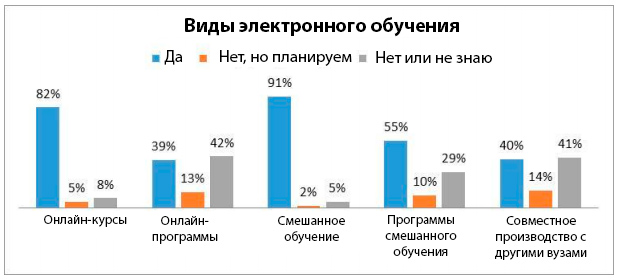Aphorisms of the Labrurier. If you suffer from a man who has left you, a person suffers not so much from
Aphorisms Montaigne
- A hallmark of wisdom is the invariably joyful perception of life; she, like everything in the sublunary world, is characterized by never-lost clarity.
- A person suffers not so much from what is happening, but from how he evaluates what is happening to him.
- There are people who recover from one type of medicine.
- Science is only suitable for strong minds, and they are very rare.
- Instead of trying to get to know others, we only bother about how to flaunt ourselves, and our concerns are more likely to be directed to that. so as not to let your product stale, rather than to buy a new one for yourself.
- Just as plants wither away from excessive moisture, and lamps from excessive oil, so the human mind, with excessive occupations and an abundance of knowledge, cluttered and suppressed by their infinite variety, loses its ability to understand this piling and bends and withers under the burden of an excessive load .
- We take into storage other people's thoughts and knowledge, that's all. However, you need to make them your own.
- Only fools can be unshakable in their confidence.
- True dignity is like a river: the deeper it is, the less noise it makes.
- A paddle immersed in water seems broken to us. Thus, not only what we see is important, but also how we see it.
- Life in itself is neither good nor evil; it is a container of both good and evil, depending on what you yourself have turned it into.
- When judging an individual act, then before evaluating it, one must take into account various circumstances and take into account the whole appearance of the person who committed it.
- A true friend is one whom I would believe in everything that concerns me more than myself.
- The measure of life is not in its duration, but in how you used it.
- Admitting ignorance is one of the best and surest evidence of the existence of reason.
- When we do not have real diseases, science rewards us with the invented ones.
Aphorisms of Larochefoucauld
- The surest way to be deceived is to consider yourself more cunning than others.
- It’s not a big trouble to serve the ungrateful, but a great misfortune to accept a service from a scoundrel.
- The mind sometimes serves us only in order to boldly do stupid things.
- In order to take good advice from the outside, sometimes it takes no less intelligence than to give good advice to oneself.
- He who thinks he can do without others is greatly mistaken; but that one. he who thinks that others cannot do without him is even more mistaken.
- 11th, if we had shortcomings, we would not be so pleased to notice them with our neighbors.
- People not only forget good deeds and insults, but even tend to hate their benefactors and forgive offenders. The need to thank for good and avenge evil seems to them slavery, which they do not want to submit.
Philosophy triumphs over the sorrows of the past and future, but the sorrows of the present triumph over philosophy.
- True love is like a ghost: everyone is talking about it, but few have seen it.
- Do not trust your friends shamefully than being deceived by them.
- Everyone complains about their bruising, but no one complains about their mind.
- In everyday life, our flaws sometimes seem more attractive than our virtues.
Aphorisms of Labrurier
- Smart facial expression in men is the same as the correctness of features in women; it is a kind of beauty that the most conceited people would like to have.
- True friendship can only be connected to those people who know how to forgive each other minor flaws.
- Generosity is not so much to give a lot, but to give in a timely manner.
- Despising fashion is just as foolish as following it too zealously.
- Talent, taste, mind. common sense - all these are different, with completely compatible advantages.
Everyday observations prominent people and the strength of their wisdom and ability to generalize are also of great value. Therefore, books with aphorisms by the classics are of particular interest. Dale Carnegie once attempted to generalize the life observations and thoughts of famous people on the secrets of human communication. The result was the popular book, How to Make Friends and Influence People. This and his other books were written amusingly, with lots of examples giving visual effect, which is typical for books written on the basis of everyday psychology. All this makes such books very attractive to readers.
Dale Carnegie
Historical excursion
Dale Carnegie (1888-1955) - American writer, lecturer. His family lived in great poverty, however, he received a good education. Even at school, teachers noted Dale's special sociability. But after graduating from school, Carnegie began working as a messenger in Nebraska, then as an actor in New York, and finally decided to study oratory. The classes were very successful, and Dale decided to start his own teaching practice. In the course of his work, Carnegie gradually developed a communication skills training system. This system was so unique that he decided to formalize the copyright for it by publishing several booklets.
The real success and recognition of readers came to Carnegie in 1936, when the book "How to Make Friends and Influence People" appeared on the bookshelves of many stores (How That Win Friends and Influence People). This book did not open any completely new ideas about human nature, but it contained brief and at the same time capacious advice on how to behave better in order to win the interest and sympathy of others. Carnegie convinced readers that everyone and everyone could like it, the main thing is to present themselves well to the interlocutor.
The popularity and vitality of Carnegie’s theory has helped many of his readers. Dale Carnegie lived by the principle: there are no bad people, but there are unpleasant circumstances that you can fight with, and you should not spoil the life and mood of others around them.
The main criterion for the truth of knowledge of everyday psychology is their credibility and obvious usefulness in everyday life situations. If people see confirmation of certain everyday psychological principles in everyday life and feel their practical benefits, then they consider these principles to be true and will continue to use them in similar situations. Having been reinforced many times in the experience of a large number of people, the principles are fixed in oral folklore in the form of proverbs and sayings.
Features of knowledge of everyday psychology are specificity and practicality. They always characterize the behavior, thoughts and feelings of people in some specific typical situations. Some sellers, advertising agents manifest themselves as good psychologists in business relations, understanding the features of the buyer’s behavior, and build their conversation and behavior accordingly. Many women and men who own the secrets of seduction exhibit knowledge of everyday psychology. But in all cases, this knowledge is of value only in situations of a certain kind, in communicating with people of a certain kind. Sometimes this knowledge can reach a certain level of generalization and can be expressed in proverbs (“Neither eternal joy nor endless sorrow”, “They carry water on angry people”), give people practical advice (“Don’t be discouraged in need, don’t weaken in happiness”, “After fights don't wave fists ").
Task for reflection
Explain in your own words what psychological wisdom is expressed by the following Carnegie aphorisms. Give examples of everyday observations or situations in which these aphorisms are confirmed.
A responsible and exciting time comes for you and your children - the time for passing the first state exams. The result of certification of your child depends on how seriously you take them. Our task with you is to help to pass this path with honor, showing everything that it has learned and what has succeeded over the years. The exam for students is a kind of stress. Stress - in English, “stress” - a state of stress that occurs in a person under the influence of strong influences. Stress is a state of mental and behavioral disorder associated with a person’s inability to act in this situation. Conversations with students, questionnaires showed that most children are not confident in their abilities, they are afraid of upcoming exams.

A.A. Rukhmanov “The Hunter and His Sons” The fairy tale “The Hunter and His Sons”, I hope, will help expand my ideas about stress and how to overcome it. Once upon a time there lived a hunter in a certain kingdom. His life was not easy. With difficulty he got his piece of bread. How many versts have passed through the forest before some living creatures meet. It happened that happiness will prevail - a big catch will come across: both meat and skin are not bad. Take it to the market, you look, and there is something to feed the family. And what a joy it was when the son was born. He was not happier than man. But the black mountain walked alongside - lifted the clubfooted son. There was no limit to the sadness of the unfortunate father.

Somehow a hunter is walking through the woods, checking the snare. He sees that he got a gray hare. Not bad, the hunter thought, now the hare is prey. He took gray by the ears, he wanted to throw him in his bag, and suddenly spoke in a slanting human voice: “Let me go, good hunter.” Ask what you want, any farms. The hunter marveled at the miracle: - How many years I live, but I have never seen such a miracle. Whatever happens, the hare is not a bear. And suddenly, really, what I ask is what he will do.

He began to think what to ask of a hare. He remembered his unhappy son, remembered his joy at his birth and sadness after his death, thought about his miserable life and said: “Okay, gray, run! Just make sure that my son is born second, that he is healthy, that his life is calm, calm, so that he does not have any worries and no worries. He said and let go of the hare. “Everything will be as you want,” said the hare and disappeared into the bushes. The hunter only heard how the branches rustled after the wonderful beast who had escaped.

The due date has passed - the second son was born to the hunter. The baby is good for everyone: he has come out with growth and face, and is growing strong. Only too calm - does not laugh, does not cry; neither reluctance to walk him, nor eat, nor drink. It grows itself and grows, but shows no interest in anything. For all my childhood I have never filled a bump, I didn’t get scratches, I didn’t fight with anyone and I was not friends with anyone. The son grew up strong, healthy, but his whole life somehow passes by. Woe where what joy - nothing touches. Father and mother died - did not grieve; I liked the girl - I was not happy; was going to get married - but hesitated.

Once he met a gray hare in the forest, but he doesn’t run away, he says in a human voice: “Well, brother, how are you? Satisfied with a calm life? Maybe you want to live differently? The hunting son was not surprised at the talking hare either. “As you wish,” he answers. And the hare said: “Live as all people live, and he hid himself in the forest.” A young man looked around. Around the forest is wonderful, pristine beauty. “As I had not noticed before,” he thought. Heart fluttered with happiness, breathtaking. Only that was enough for him. He fell and ... died.


Since 2004, the Russian Federation has been testing the state (final) certification (GIA) of 9th grade graduates in a new form. The main difference between the new form of certification and traditional exams is that it assumes, as a result, an independent "external" assessment of the quality of training of 9th grade graduates. When conducting certification in a new form, tasks of a standardized form are used, including tasks with a choice of answer, as well as with a short and detailed answer (by analogy with the USE). Completing these tasks allows you to establish the level of development of the federal state standard of basic general education by 9th grade graduates. The introduction of a new exam model for graduates of a primary school is dictated by the need to put into practice an open and objective procedure for assessing students' academic achievements. The results of the GIA in a new form can be used both for attesting graduates to a course in a primary school, and for identifying students who are most prepared to study in specialized classes of high school.



Psychologist's advice Psychological stress is always present at the examination time. Stress in this case is an absolutely normal reaction of the body. Light emotional outbursts are useful, they have a positive effect on performance and enhance mental activity. But excessive emotional stress often has the opposite effect. The reason for this is, first of all, a personal attitude to the event. Therefore, it is important to form an adequate attitude to the situation. It will help graduates to intelligently distribute forces for preparing and passing the exam, and parents to provide their child with the right help.

Tips for parents It is your support that a graduate needs first of all. Often parents experience crucial moments in the lives of their children much more sharply than their own. But it’s much easier for an adult to cope with their own excitement by pulling themselves together. Parent behavior During the examination time, the main task of parents is to create optimal comfortable conditions for the preparation of the child and ... not to interfere with him. Encouragement, support, real help, and most importantly - calm adults help the child successfully cope with their own excitement. Do not bully the child, do not remind him of the complexity and responsibility of the upcoming exams. This does not increase motivation, but only creates emotional barriers that the child himself cannot overcome. It is very important to adjust the graduate's expectations. Explain that for a good result it is not at all necessary to answer all questions of the USE. It is much more efficient to calmly answer the questions that he knows for sure than to worry about unresolved assignments. Unified assignment questions Regardless of the outcome of the exam, often, generously and wholeheartedly tell him that he (she) is the most ( ay) beloved (s), and that everything in him (her) in life will succeed! Belief in success, confidence in your child, his abilities, stimulating help in the form of praise and approval are very important, because "from a good word, even cacti grow better."

Dear Parents! 1. Create a cozy, warm working atmosphere in your home 2. Eliminate the raised tone 3. Be sensitive to his requests if he asks you for help 4. Tell your child about methods for quick memorization and repetition 5. Take into account the schedule of minute breaks after an hour of work and daily walks in the fresh air 6. Follow the diet 7. Inspire your children with more confidence, often say: “I’m sure that you can do it”, “Everything will be fine, you are great!” 8. Get into the philosophy of optimism! Remember, a person, alas, easily gets used to his weaknesses and shortcomings. And if a person is told that he’s not capable of anything, that he’s idiot and the like, he will become like this one day by no means a wonderful day! 9. Set yourself and your child to success!

Nutrition and daily routine Take care of the organization of the daily routine and good nutrition. Products such as fish, cottage cheese, nuts, dried apricots, etc. stimulate the brain. By the way, at this time and "from the buns do not get fat!". Do not overload the child. After every minutes of classes, you must definitely take breaks for minutes. On the eve of the exam, the child should rest and sleep well. Keep track of this.





